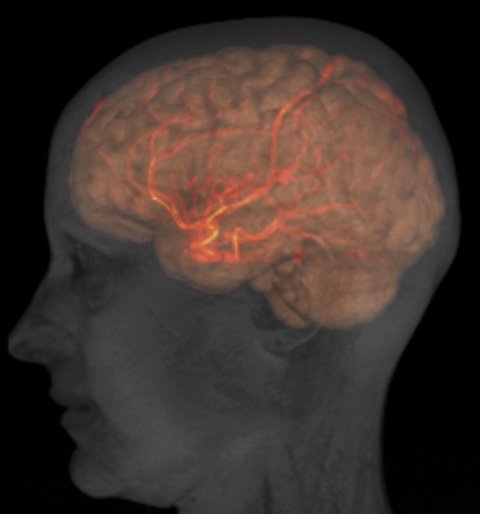News • Prevention, treatment, care and support
Action on stroke: Experts launch joint declaration
An appeal is launched for Health Ministries across Europe to sign the Declaration for Action on the Stroke Action Plan for Europe to tackle one of the leading causes of death and disability.

Image source: Patrick Hales, UCL, via Wellcome Collection (CC BY 4.0)
Led by The European Stroke Organisation (ESO) and Stroke Alliance for Europe (SAFE), the initiative aims to encourage European countries to show their commitment to improving stroke prevention, treatment, care and support, by signing the Stroke Action Plan for Europe Declaration and add their voice to the fight against stroke across Europe.
The Stroke Action Plan and more information can be found at the ESO website.
It is estimated that over one million people in Europe have a stroke and 460,000 die as a result of a stroke every year and almost 10 million people are living with the impact of stroke. It is estimated that the number of people living with a stroke will rise by 26% within the next generation. Stroke causes large costs to healthcare budgets and societies. The costs related to stroke in Europe were recently estimated as high as €60 billion and are predicted to increase to rise to €86 billion, a 44% increase, by 2040.
Hanne Christensen, Professor of Neurology and Chair of the Stroke Action Plan for Europe says, ‘Stroke can be prevented and treated due to the significant discoveries over recent decades, however, there is still a significant gap between knowledge and the delivery of stroke services in spite of the high cost-effectiveness of stroke care. All stroke patients across Europe should have access to the best possible evidence-based care to ensure the best quality of life post stroke. Implementation of the Stroke Action Plan for Europe will help us achieve this.’
Immediate attention is needed to ensure that disruptions to stroke care due to Covid-19 do not feed into the health service crisis caused by the pandemic
Arlene Wilkie
Francesca Romana Pezzella, Stroke Neurologist and Stroke Action Plan for Europe co-chair adds, ‘The Stroke Action Plan for Europe gives us a unified approach for stroke treatment and management to help us tackle inequalities in stroke care across European countries, which have been made worse by the coronavirus pandemic.’ The impact of stroke can be reduced by appropriate investment and organisation of services for prevention, treatment, support and care. To coordinate efforts to reduce the burden of stroke across Europe, the Stroke Action Plan for Europe was launched in 2018 by ESO and SAFE, representing stroke experts and patients from across Europe.
Arlene Wilkie, SAFE Director General and Stroke Action Plan for Europe implementation co-chair says, ‘Stroke is the biggest cause of adult disability in Europe and impacts on all aspects of life – economic, social, medical, physical and mental health. Immediate attention is needed to ensure that disruptions to stroke care due to Covid-19 do not feed into the health service crisis caused by the pandemic.’
The aim of the Stroke Action Plan for Europe is to improve the entire stroke care pathway, from prevention and early treatment, to support and after-care. It will improve outcomes for patients and carers and will be highly cost effective for all countries in Europe. The Stroke Action Plan for Europe will also help reduce the burden of other non-communicable diseases. For example, implementation of appropriate prevention strategies for stroke will also reduce the incidence of dementia, heart disease, diabetes and obesity, which will have a significant impact on wellbeing, life expectancy, and healthcare costs.
ESO and SAFE have recently launched an implementation plan for the Stroke Action Plan for Europe reaching out to all 53 countries in the European region. The implementation plan will be adapted to each country to ensure its effectiveness, will help establish National Stroke Plans, and will provide tools to improve stroke prevention, treatment, support and care, including an online learning hub for stroke and a listing of evidence-based basic care elements.
Annual national summary data on the 12 Key Performance Indicators outlined in the Declaration, will be collected to allow for benchmarking both over time and within countries. This will provide each country with the knowledge and data it requires to continue to improve its implementation of its national plan.
Source: European Stroke Organisation
11.05.2021





